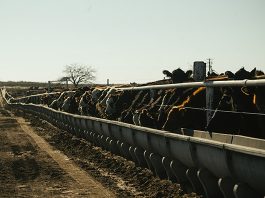Since we’re beginning the year by focusing on goals, here’s another avenue: business planning. Yes, business plans are tedious. Yes, they can make you feel like you got stuck on an elevator with the most boring person in the universe while on the way to really great party. But if you work through the pain, a business plan can focus you in on where you want to go, and what you need to do or have to get there, or help you realize that you don’t want to go there after all. Here’s a real-life example from my own life.
 I am not a planner, at least not in the strict sense of the term. I’m more of a “visionary.” I get a picture of something I’d like to do or accomplish, I imagine it fully-formed and beautiful, I think about the first steps for heading in that direction, I describe the benefits to myself of doing this new thing, and then I GO! I am usually sure enough of myself that I can explain it positively to others so that they think it’s a good idea too, and they decide to come with me. Fortunately when I do this, I do it in small “pilot projects” so that if they don’t turn out as imagined, I’ve done little, if any harm and everyone involved has had a lot of fun.
I am not a planner, at least not in the strict sense of the term. I’m more of a “visionary.” I get a picture of something I’d like to do or accomplish, I imagine it fully-formed and beautiful, I think about the first steps for heading in that direction, I describe the benefits to myself of doing this new thing, and then I GO! I am usually sure enough of myself that I can explain it positively to others so that they think it’s a good idea too, and they decide to come with me. Fortunately when I do this, I do it in small “pilot projects” so that if they don’t turn out as imagined, I’ve done little, if any harm and everyone involved has had a lot of fun.
When heading into a larger project, like starting a farm or ranch, or deciding to improve an existing operation, the stakes are much higher, and planning is a good thing. To illustrate, here’s a visionary project I wanted to create, and how writing a business plan made me ask and answer questions that saved me from a life with goats.
Goats For Firesafe Homes in Wildland Areas

From 1997 to 2002, I ran a research project to see if goats could be used to successfully create firebreaks to protect subdivisions built near fire prone areas, and to solve the logistical problems involved in managing goats for firebreak building. I found that good fencing and positioning of goat workers could create firebreaks that could act as safe zones for firefighters trying to slow or stop fires threatening homes. Combine that with a lot of hard work, and you have a valuable firefighting service.
I loved the goats, I loved being outside with them, and I loved solving problems. (The last is an important attribute for anyone working with goats, since they will always be creating new problems to solve). I also believed that this service would be important to lots of people. I had about 150 trained goats, lots of fencing and equipment, and a CD handbook including videos describing why this was a useful tool and how to use it. So I began to think about creating a goat firefighting business.
The first step was to attend an evening course on how to write a business plan. It was drudgery. My beautiful vision had to be broken down into a mission statement (not so hard to write), goals (still pretty easy), potential customers and how to reach them (a little tedious, but eye-opening), and then the money “stuff.” Guest speakers told us about business formation, taxes and how to prepare for them, how to estimate how much money we might make, and all the costs associated with making that money. It was mind-numbing and very painful for someone who doesn’t really enjoy numbers. I stayed because I really needed to know, “Should I risk investing my time, energy, and money in this new business?”
Business Planning Improves Vision

I learned two very important things from the process. One is that business planning helps me ask questions that clarify where I want to go, and how the potential business would do at getting me there. The second was that goats, and my potential business, were not going to take me where I wanted to go.
Business planning made me add new images to the vision in my head like: the actual difficulty level of locating and signing on customers and how much time and money that effort would cost; the number of people I knew running goat-weed-management businesses that had gotten divorced because they were never at home; and, most importantly, how a hypothyroid body reacts to the heat and exertion of putting up goat netting in brush, hot-summer-day after hot-summer-day. It wasn’t the money that stopped me. It was the recognition that the business wouldn’t give me a lifestyle that I could live with.
Can a Business Plan Give Me the Life of My Dreams?
That’s a pretty tall order for a planning process. Rather, I’d say that a business plan can help give your dreams a practical foundation and help you avoid some potential nightmares. Yes, they are tedious. Yes, they can make you feel like you got stuck on an elevator with the most boring person in the universe while on the way to a really great party. But if you work through the pain, a business plan can focus you in on where you want to go, and what you need to do, or what you need to have, to get there. Or it might help you realize that you don’t want to go there after all.
This Is Where You, the On Pasture Community, Comes In
 Recently, I’ve been looking at business planning resources for farmers and ranchers because I think that’s something useful that On Pasture can do for our readers. I can better target my search for you if you’ll share some of your thoughts, concerns and needs.
Recently, I’ve been looking at business planning resources for farmers and ranchers because I think that’s something useful that On Pasture can do for our readers. I can better target my search for you if you’ll share some of your thoughts, concerns and needs.
What’s your experience of business planning? Do you have a business plan and do you use it to guide what you do?
Most people I know don’t have a business plan. If you don’t have one, why not and what stops you from creating one?
Do you know how to track your daily/monthly/quarterly costs and income? If you do, can you share how you do it or what tools you use for that? Is it useful to you in making operational decisions? If you don’t track your costs and income, would you like to learn?
This is a huge topic and there’s lots to learn and share. We’ll be calling in some big guns to give you a hand up, and maybe even writing some business plans using tools we find. So stay tuned!





Kathy, it sounds like we are a lot alike. My husband and I have a ranch in TX that we started from scratch 3 years ago. We still don’t have a formal business plan–we just have a lot of determination, backgrounds in engineering, and motivation to make this work. But I want to get us on an even keel so we can make good purchasing and investment decisions.
We didn’t have any experience farming before beginning, so it was a steep learning curve, and we dove right in with milk cows, beef cows, heritage breed pigs, laying chickens, broiler chickens, and Thanksgiving turkeys. After the first few years of scrambling to learn to farm, reading everything we could get our hands on, visiting other farms, and gleaning as much knowledge from other farmers as we could, we got our heads around how to produce fat cows, healthy pigs, low-mortality-rate chickens, etc.
Now that we’re in the nitty-gritty and have more or less mastered the farming aspect, I would definitely agree that what would make or break a farm operation is the business side of things. It is way harder to find an effective method of record and book-keeping than I ever expected. It’s even harder to find business-planning resources that are geared toward small-time, direct-to-consumer farmers. Nobody talks about how much more time selling direct can take and how hard it can be to get into stores. I’d love to read a detailed plan on how to write up a business plan that accounts for seasonal sales, bursts of product availability, how to invest in equipment effectively, etc.
Among the hardest lessons that I have learned (since I’m the bookkeeper) is that there are specific rules on how to deduct business expenses and you should know those BEFORE you start spending so you spend in the most beneficial way. I learned that the IRS wants certain expenses associated with income of one kind and all the rest recorded in a different way (products raised vs. products resold). I learned that finding a good CPA is not easy and that you really need to understand tax law going in so you don’t get screwed up. I learned that depreciation can be useful, but shouldn’t be relied upon to bring down taxable income. I learned that tracking income and expense as you go is always better than trying to catch up in time for April 15 a whole year later. I learned that keeping track of customers and what they bought and when is really important so you don’t accidentally insult the person who just bought a half a cow by asking them if they’re ready to order again.
I look forward to seeing what you guys come up with. Please don’t be afraid to get specific–we farmers are tired of ambiguous resources that don’t address our issues in a tangible way.
Kathy,
This is a very important topic.
As you point out most farmers do not have a formal business plan. Successful farmers often have a strong mental business plan. I have found that the business plan (mental or formal) determines the success of the operation. We often talk about grazing management, soil testing, or livestock nutrition. However, all of these management practices need to be implemented in context with the farm business and economic sustainability. If a farm is not economically sustainable it will not stay in operation. If the operation is not socially sustainable, the family may not stay together.
As you said, having a formal plan helps clarify the current or proposed business and brings the business into focus with the individual’s or family’s vision for their life.
We farm because we like the lifestyle, the cows (or sheep or goats), and grass. A well implemented business (plan) enables us to pay ourselves to do this.
Thank you for writing on this topic.
Ed
Comments are closed.